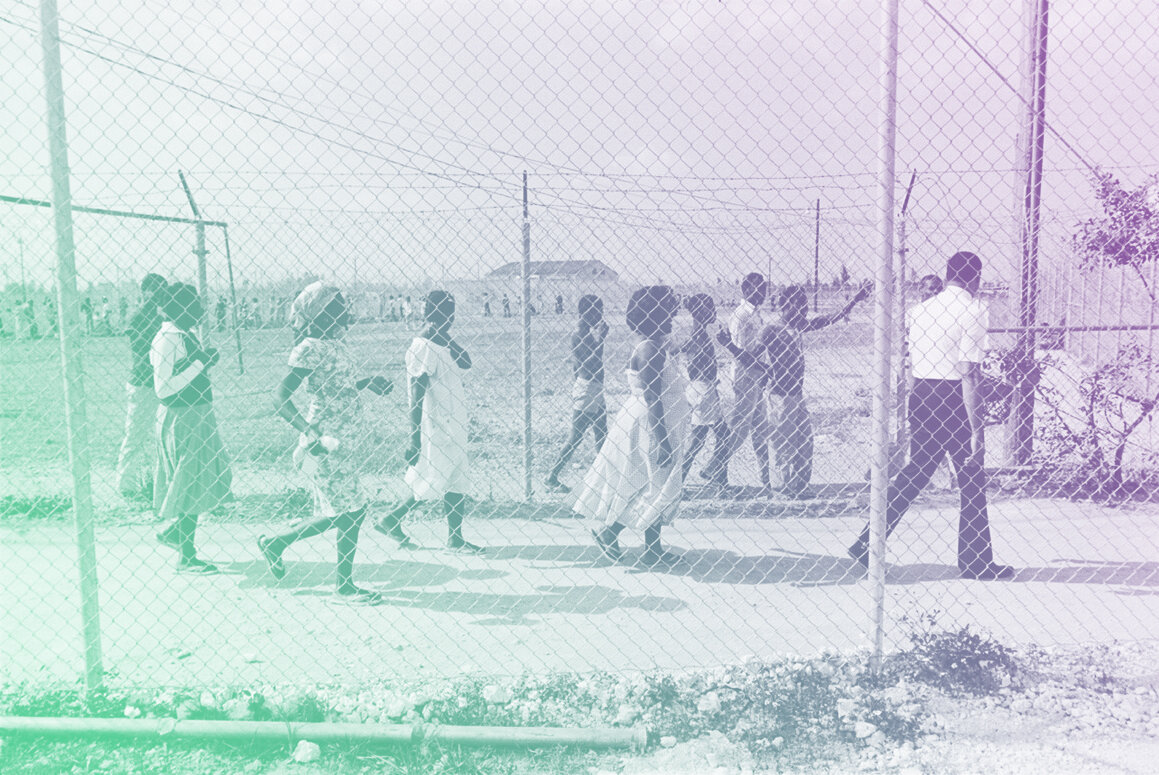
CLE Material
Thursday, October 22
Panel 1
12:30 p.m. – 1:45 p.m. ET
Discrimination and Dissent: The Legacy of Jean v. Nelson.
The year 2020 marks the 35th anniversary of Justice Marshall’s pioneering dissent in Jean, wherein he sought to extend the guarantee of equal protection to Haitian asylum seekers detained around the United States. The opening panel will reflect on Jean, examine how it heralded and influenced contemporary efforts to secure racial justice for Haitian immigrants through litigation, and discuss the deleterious impact that the United States’s immigration policies have had upon Haitian immigrants over the decades. The panel will feature Ira Kurzban, who represented the petitioners before the Court; Muzaffar Chishti, the former Secretary-Treasurer of the National Coalition for Haitian Refugees; and Ninaj Raoul, a Haitian activist who has long worked with Haitian immigrants around the country. This panel will expand the professional competency of immigration and civil rights attorneys by examining the ways that administrative law, constitutional law, and equal protection jurisprudence have historically been used to advocate for immigrant communities of color. It will also examine seminal civil rights court decisions and the litigation strategies that informed them, so that attorneys can model those practices in contemporary efforts to vindicate the civil rights of immigrants of color.
Hiroshi Motomura, Immigration Law After a Century of Plenary Power: Phantom Constitutional Norms and Statutory Interpretation, 100 Yale L.J. 545, 547 (1990)
Cheryl Little, United States Haitian Policy: A History of Discrimination, 10 N.Y.L. Sch. J. Hum. Rts. 269 (1993)
Gabriel J. Chin, Segregation’s Last Stronghold: Race Discrimination and the Constitutional Law of Immigration, 46 UCLA L. Rev. 1 (1998)
Irwin P. Stotzky, Haitian Refugees and the Rule of Law, 61 Guild Prac. 151 (2004).
Catherine Y. Kim, Plenary Power in the Modern Administrative State, 96 N.C. L. Rev. 77 (2017)
Shalini Bhargava Ray, Plenary Power and Animus in Immigration, 80 Ohio St. L. J. 13 (2019)
Carl Lindskoog, How the Haitian Refugee Crises Led to the Indefinite Detention of Immigrants, Wash. Post, Apr. 9, 2018
Panel 2
2:00 p.m. – 3:15 p.m. ET
Racial Injustice in the Era of Trump: Immigration and the Courts
For Justice Marshall, it was incumbent on the Court to dispel the legal fiction that the petitioners were beyond the reach of the Constitution. For him, that same insidious fiction supported the myth that “freed slaves were not ‘people of the United States.’” Although the Jean majority failed to address this issue, the Trump administration’s racialized immigration policies —including its efforts to revoke DACA, DED, and TPS—are forcing courts to grapple with it anew. Its policies are also forcing lawyers to employ new litigation strategies to combat the administration’s overt attacks against immigrants of color. This panel will bring together lawyers litigating the various DACA, DED and TPS cases around the country to discuss the state of the court struggle for racial justice in immigration. It will expand the professional competency of immigration and civil rights attorneys by examining the ways that administrative law, constitutional law, and equal protection jurisprudence are being used to advocate for immigrant communities of color. Attorneys will learn about potential causes of action; pleading race discrimination claims in the immigration context; securing discovery from high-level government officials, including White House discovery; and litigating assertions of executive privilege in federal court.
Michael J. Wishnie, Proportionality: The Struggle for Balance in U.S. Immigration Policy, 72 U. Pitt. L. Rev. 431 (2010-2011)
Raymond Audain, Not Yet Forgiven for Being Black: Haiti’s TPS, LDF, and the Protean Struggle for Racial Justice, 52 Loy. L.A. L. Rev. 409 (2019)
Batalla Vidal v. Nielsen, 291 F. Supp. 3d 260 (E.D.N.Y. 2018)
African Communities Together v. Trump, 2019 WL 5537231 (D. Mass. 2019)
Friday, October 23
Panel 3
2:00 p.m. – 3:15 p.m. ET
The State of Immigrant Communities of Color: Racial Injustice and Community Organizing
In many respects, Jean demonstrates the limits of litigation to secure racial justice for immigrants of color. Throughout history, activists and community organizations have enabled social change, working alongside lawyers to address racial injustice in immigration. This remains true today, as the administration’s policies continue to exacerbate the racial harms experienced by immigrant communities of color. This panel will explore the state of the struggle from a community perspective, and discuss effective strategies for lawyers to provide greater support to immigrant communities. Attorneys will learn about the challenges of representing community interests within the parameters of federal litigation; considerations when seeking to represent organizational plaintiffs; ways they can better engage with activists and community groups; and ways they can improve the quality of legal services rendered to immigrants of color.
Amna A. Akbar, Toward a Radical Imagination of Law, 93 N.Y.U. L. Rev. 405 (2018)
Sameer M. Ashar, Movement Lawyers in the Fight for Immigrant Rights, 64 UCLA L. Rev. 1464 (2017)
Betty Hung, Movement Lawyering as Rebellious Lawyering: Advocating With Humility, Love and Courage, 23 Clinical L. Rev. 663 (2017)
William P. Quigley, Reflections of Community Organizers: Lawyering for Empowerment of Community Organizations, 21 Ohio N.U. L. Rev. 455 (1994)
CLE
Panels 1, 2, and 3 of the conference are each accredited for 1.5 CLE credits in New York State, in the Areas of Professional Practice category. Participants who wish to seek CLE credit may do so by completing the affirmation (mandatory) and evaluation form (nonmandatory). Kindly return the forms to Diane Simmons no later than October 30, 2020. Please direct questions about CLE and the conference to Ms. Simmons.
